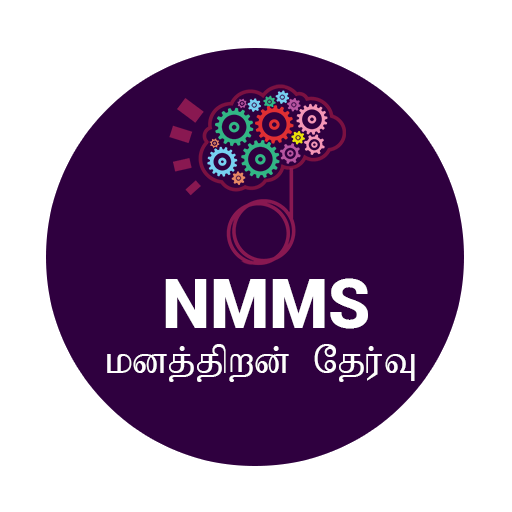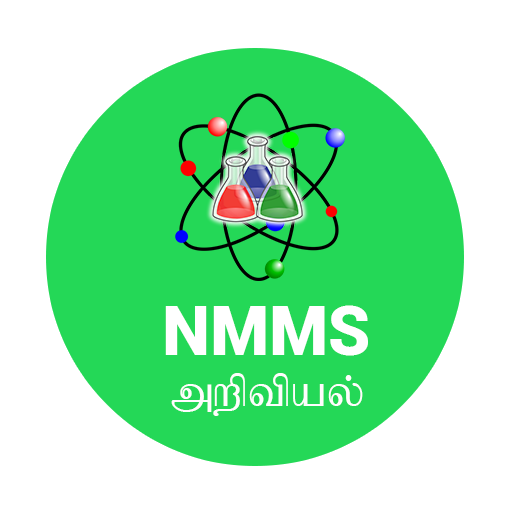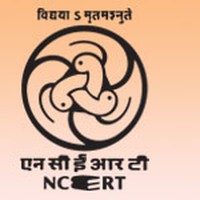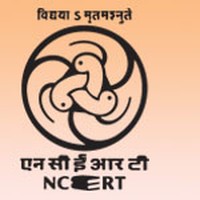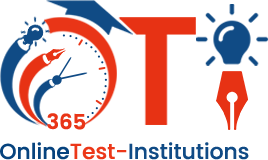

NTSE General English - Passage Completion
Exam Duration: 45 Mins Total Questions : 30
There appears to be relative quietness on the power front. After the initial euphoria with regards to allowing the entry of private and foreign capital into the power sector, the promised guaranteed 16% return on net worth, liberal financing facilities, a higher than usual debt, equity norms, the government is now waiting for the flood to arrive. How realistic are the expectations of the government can be made out by the response of the private sector.
Till date, there is less than 1000 nw. of generation capacity under active implementation in the private sector, mainly by those companies which are already involved in power generation and distribution. There are very few actors entering the business. According to power ministry sources, there are proposals to put up more than 8000 mw of generation.
The power front refers to:
- (a)
Political power
- (b)
Physical power
- (c)
Coal, electricity/department
- (d)
Power of people
There appears to be relative quietness on the power front. After the initial euphoria with regards to allowing the entry of private and foreign capital into the power sector, the promised guaranteed 16% return on net worth, liberal financing facilities, a higher than usual debt, equity norms, the government is now waiting for the flood to arrive. How realistic are the expectations of the government can be made out by the response of the private sector.
Till date, there is less than 1000 nw. of generation capacity under active implementation in the private sector, mainly by those companies which are already involved in power generation and distribution. There are very few actors entering the business. According to power ministry sources, there are proposals to put up more than 8000 mw of generation.
The word 'euphoria' means:
- (a)
inclusion
- (b)
power
- (c)
enthusian
- (d)
curiosity
There appears to be relative quietness on the power front. After the initial euphoria with regards to allowing the entry of private and foreign capital into the power sector, the promised guaranteed 16% return on net worth, liberal financing facilities, a higher than usual debt, equity norms, the government is now waiting for the flood to arrive. How realistic are the expectations of the government can be made out by the response of the private sector.
Till date, there is less than 1000 nw. of generation capacity under active implementation in the private sector, mainly by those companies which are already involved in power generation and distribution. There are very few actors entering the business. According to power ministry sources, there are proposals to put up more than 8000 mw of generation.
The government is now waiting for the' flood' means:
- (a)
flood due to water
- (b)
flood of electricity
- (c)
flood of people
- (d)
people wanting to invest in sector
India is a young nation, from 1.21 billion people (2011 census), 65% of India's population is under the age of 35. India is skewed, wards youth as making it an opportunity which is potentially significant for the economy. If not, it may take a shape of demographic disaster and thus the country should invest heavily in youth education, health care and well being.
India is skewed towards youth:
- (a)
as 65% India population is under the age 35
- (b)
the youth of the nation is demanding
- (c)
the youth of the country is about 40%
- (d)
the youth of the nation is between 40% to 65%.
India is a young nation, from 1.21 billion people (2011 census), 65% of India's population is under the age of 35. India is skewed, wards youth as making it an opportunity which is potentially significant for the economy. If not, it may take a shape of demographic disaster and thus the country should invest heavily in youth education, health care and well being.
India has to utilize it by making it an opportunity which is potentially significant for economy;
- (a)
it referred to productivity of economy.
- (b)
the youth's energy has to be linked into productive source for the economy.
- (c)
the youth has capacity to improve economy
- (d)
the youth can help in the growth of the economy.
India is a young nation, from 1.21 billion people (2011 census), 65% of India's population is under the age of 35. India is skewed, wards youth as making it an opportunity which is potentially significant for the economy. If not, it may take a shape of demographic disaster and thus the country should invest heavily in youth education, health care and well being.
And thus the country should invest heavily in the youth education, health care and well being:
- (a)
country should invest in education and health care for the youth
- (b)
education and healthcare will make youth strong
- (c)
education and healthcare will make country strong
- (d)
the country should take care of youth's education and healthcare to get possible outcome
A major problem in India is illiteracy and proverty which has been the root cause of all the other problems. Unless and until the population of country will become literate and educated, country's growth would be at stake. There are 400 million Indian below poverty line and India spends and 3.3 billion energy year on primary education. Government has made many schemes to uplift the education system of India but due to corruption and crime, happening at a very bigger scale, the education industry is still facing many challenges.
The education industry is still facing many challenges:
- (a)
the education system is challenged
- (b)
the problem in Indian education systems all due to crime.
- (c)
the education industry is not getting the benefit of government policies due to crime and corruption.
- (d)
the government schemes are able to help the education industry inspite large of scale corruption and crime
A major problem in India is illiteracy and proverty which has been the root cause of all the other problems. Unless and until the population of country will become literate and educated, country's growth would be at stake. There are 400 million Indian below poverty line and India spends and 3.3 billion energy year on primary education. Government has made many schemes to uplift the education system of India but due to corruption and crime, happening at a very bigger scale, the education industry is still facing many challenges.
A major problem in India is illiteracy and poverty which has been the root cause of other problems:
- (a)
biggest problems of India is the roots
- (b)
all other problems of Indian stem from poverty and illiteracy
- (c)
the root of India have a problem
- (d)
poverty and illiteracy of India are the biggest problems.
A major problem in India is illiteracy and proverty which has been the root cause of all the other problems. Unless and until the population of country will become literate and educated, country's growth would be at stake. There are 400 million Indian below poverty line and India spends and 3.3 billion energy year on primary education. Government has made many schemes to uplift the education system of India but due to corruption and crime, happening at a very bigger scale, the education industry is still facing many challenges.
Unless and untill the population of country will become illterate and educated, country's growth to be at the stake:
- (a)
the country growth is at stake
- (b)
there is need to improve education system of the country
- (c)
the country's growth will be undermined of population of the country is uneducated
- (d)
literacy and education can only bring growth in the country
Education in India has become the biggest industry as people have made it their business instead of their profession. Coaching institutes who teach students to clear the preparatory exams for different courses are Flourishing in their business by making the false claims. Even they bribe the toppers students and colleges are charging every donations to take admissions and agents negotiate with parents in returns of good commissions. Some management medical and engineering colleges are even charging millions for the admission in management. Many parents are also willing to pay such hefty amounts as donations as they also have a lot of black money. So, the whole system is getting corrupted and over the years, it has become a culture.
Education in India has become the biggest industry as people have made it their business:
- (a)
Education is a big business
- (b)
Education is a part of Indian industry
- (c)
Education is an industry with professionals
- (d)
Education is more of on commercial track, hence part of industry
Education in India has become the biggest industry as people have made it their business instead of their profession. Coaching institutes who teach students to clear the preparatory exams for different courses are Flourishing in their business by making the false claims. Even they bribe the toppers students and colleges are charging every donations to take admissions and agents negotiate with parents in returns of good commissions. Some management medical and engineering colleges are even charging millions for the admission in management. Many parents are also willing to pay such hefty amounts as donations as they also have a lot of black money. So, the whole system is getting corrupted and over the years, it has become a culture.
Many schools have different agents:
- (a)
Schools are engaged, agent of change
- (b)
School everyone agents on commissions to get admissions
- (c)
School keep different chemical
- (d)
School engage agents of difference
Education in India has become the biggest industry as people have made it their business instead of their profession. Coaching institutes who teach students to clear the preparatory exams for different courses are Flourishing in their business by making the false claims. Even they bribe the toppers students and colleges are charging every donations to take admissions and agents negotiate with parents in returns of good commissions. Some management medical and engineering colleges are even charging millions for the admission in management. Many parents are also willing to pay such hefty amounts as donations as they also have a lot of black money. So, the whole system is getting corrupted and over the years, it has become a culture.
Coaching institutes who teach students to clear the preparatory exams for different courses are flourishing:
- (a)
coaching institutes are only taking preparatory exams
- (b)
coaching institutes are flourishing due to teaching
- (c)
coaching institutes with a single course are not flourishing
- (d)
coaching institutes are flourishing by making false promises.
No one knows when or by whom rockets were invented. In all probability the rocket was not suddenly invented but envolved gradually over a long period of time, perhaps in different parts of the world at a sometime. Some historians of rocketry, notably willy hey, trace the development of rockets to the 13th century China, a land noted in ancient times for its firework display. In the year 1232 A.D. when the Mongols laid stege to the city of Kai-Feng Fu, the capital of Honan province, the chinese defenders used weapons that were described as 'of flying fire'. There is no explicit statement that these arrows were rockets, but some students have concluded that they were because the record does not mentioned bows or other means of shooting the arrows. In the same bottle, we read, the defenders dropped from the walls of the city a kind of bomb described as 'heaven-shaking thunder'.
The passage primarily gives the history of:
- (a)
the bravery of the chinese
- (b)
the invention of rockets
- (c)
to attack on China Mogols
- (d)
the battle against the Chinese wall
No one knows when or by whom rockets were invented. In all probability the rocket was not suddenly invented but envolved gradually over a long period of time, perhaps in different parts of the world at a sometime. Some historians of rocketry, notably willy hey, trace the development of rockets to the 13th century China, a land noted in ancient times for its firework display. In the year 1232 A.D. when the Mongols laid stege to the city of Kai-Feng Fu, the capital of Honan province, the chinese defenders used weapons that were described as 'of flying fire'. There is no explicit statement that these arrows were rockets, but some students have concluded that they were because the record does not mentioned bows or other means of shooting the arrows. In the same bottle, we read, the defenders dropped from the walls of the city a kind of bomb described as 'heaven-shaking thunder'.
According to this passage, rockets were invented by:
- (a)
Willy ley
- (b)
Unknown people
- (c)
the Mongols
- (d)
the ruler of Honan province
No one knows when or by whom rockets were invented. In all probability the rocket was not suddenly invented but envolved gradually over a long period of time, perhaps in different parts of the world at a sometime. Some historians of rocketry, notably willy hey, trace the development of rockets to the 13th century China, a land noted in ancient times for its firework display. In the year 1232 A.D. when the Mongols laid stege to the city of Kai-Feng Fu, the capital of Honan province, the chinese defenders used weapons that were described as 'of flying fire'. There is no explicit statement that these arrows were rockets, but some students have concluded that they were because the record does not mentioned bows or other means of shooting the arrows. In the same bottle, we read, the defenders dropped from the walls of the city a kind of bomb described as 'heaven-shaking thunder'.
According to the phrase, rockets were:
- (a)
a gift of God to the Chinese
- (b)
invented in twentieth century
- (c)
invented in 1232 A.D
- (d)
developed over a long period of time
No one knows when or by whom rockets were invented. In all probability the rocket was not suddenly invented but envolved gradually over a long period of time, perhaps in different parts of the world at a sometime. Some historians of rocketry, notably willy hey, trace the development of rockets to the 13th century China, a land noted in ancient times for its firework display. In the year 1232 A.D. when the Mongols laid stege to the city of Kai-Feng Fu, the capital of Honan province, the chinese defenders used weapons that were described as 'of flying fire'. There is no explicit statement that these arrows were rockets, but some students have concluded that they were because the record does not mentioned bows or other means of shooting the arrows. In the same bottle, we read, the defenders dropped from the walls of the city a kind of bomb described as 'heaven-shaking thunder'.
The city of Kai-Feng Fu is the capital of which province of China:
- (a)
Honam
- (b)
Beijing
- (c)
Shanghai
- (d)
Bonan
No one knows when or by whom rockets were invented. In all probability the rocket was not suddenly invented but envolved gradually over a long period of time, perhaps in different parts of the world at a sometime. Some historians of rocketry, notably willy hey, trace the development of rockets to the 13th century China, a land noted in ancient times for its firework display. In the year 1232 A.D. when the Mongols laid stege to the city of Kai-Feng Fu, the capital of Honan province, the chinese defenders used weapons that were described as 'of flying fire'. There is no explicit statement that these arrows were rockets, but some students have concluded that they were because the record does not mentioned bows or other means of shooting the arrows. In the same bottle, we read, the defenders dropped from the walls of the city a kind of bomb described as 'heaven-shaking thunder'.
The bombs have been referred to as 'heaven shaking thunder' because they:
- (a)
contain gun powder
- (b)
make thunderous noise
- (c)
are propelled by rockets
- (d)
seem to fall from heaven
Legal literacy ultimately means creating general awareness on legal rights and duties, which are enforecable and whose voilations invites legal action. Human rights education, on the other hand, is based on principles of human rights which are global ethical standards protected by international instruments. Legal literacy is concerned with particular laws or rules that have specific application, and often in limited scope. Human rights are universal, their application often is based on the ethical and moral framework or the individuals or communities. Their scope is much wider, though human rights are also culturally specific.
Legal literacy means creating general awareness on legal rights and duties:
- (a)
literacy defines the way person can read and write
- (b)
legal cases against literacy drive are mainly about right and duties
- (c)
legal literacy informs the citizens about their rights and duties
- (d)
legality in literacy is the right of all citizens.
Legal literacy ultimately means creating general awareness on legal rights and duties, which are enforecable and whose voilations invites legal action. Human rights education, on the other hand, is based on principles of human rights which are global ethical standards protected by international instruments. Legal literacy is concerned with particular laws or rules that have specific application, and often in limited scope. Human rights are universal, their application often is based on the ethical and moral framework or the individuals or communities. Their scope is much wider, though human rights are also culturally specific.
Legal literacy concerned with particular laws or rules that have specific application:
- (a)
Legal literacy take care of laws or which can be enforced in limited areas
- (b)
Legal literacy is informing students of certain laws
- (c)
Legal literacy only applies in specific cases
- (d)
Legal literacy has a limited area or enforcement
Legal literacy ultimately means creating general awareness on legal rights and duties, which are enforecable and whose voilations invites legal action. Human rights education, on the other hand, is based on principles of human rights which are global ethical standards protected by international instruments. Legal literacy is concerned with particular laws or rules that have specific application, and often in limited scope. Human rights are universal, their application often is based on the ethical and moral framework or the individuals or communities. Their scope is much wider, though human rights are also culturally specific.
Human rights are universal:
- (a)
human rights have a wide scope
- (b)
human rights are applicable on individuals and communities
- (c)
human rights are cultural as well as specific
- (d)
All of the above
In a rapidly evolving urban middle class and especially a class of people which are reaching out to their legal rights and remedies more and more every play. It is becoming increasing important that a clinical access to legal education exist. It has been a year since the now famous Nirbhaya incident in Delhi. The nation continues to wake up to various high profile cases involving Supreme Court Judges to media barons involved in sexual harassment at work place, we are waking up to unlawful demolitions like the Campa Cola case in Mumbai, unlawful dententions by police in traffic voilation cases, the unlawful arrests for posts on the internet, reach case has repeatedly reinstated the notion that the awareness of the law is perhaps more important than the law itself.
Rapidly evolving urban middle class:
- (a)
the class in the middle of the evolution
- (b)
middle class is very rapid in its action
- (c)
India has a middle class only in urban areas
- (d)
India has a fast developing middle class in urban areas.
In a rapidly evolving urban middle class and especially a class of people which are reaching out to their legal rights and remedies more and more every play. It is becoming increasing important that a clinical access to legal education exist. It has been a year since the now famous Nirbhaya incident in Delhi. The nation continues to wake up to various high profile cases involving Supreme Court Judges to media barons involved in sexual harassment at work place, we are waking up to unlawful demolitions like the Campa Cola case in Mumbai, unlawful dententions by police in traffic voilation cases, the unlawful arrests for posts on the internet, reach case has repeatedly reinstated the notion that the awareness of the law is perhaps more important than the law itself.
It is becoming increasingly important that clinical access to legal education exists:
- (a)
it is important to have clinical education
- (b)
the need of the hour is to have legal education available to all
- (c)
legal education should be made available in cities
- (d)
access to legal education already exists access
In a rapidly evolving urban middle class and especially a class of people which are reaching out to their legal rights and remedies more and more every play. It is becoming increasing important that a clinical access to legal education exist. It has been a year since the now famous Nirbhaya incident in Delhi. The nation continues to wake up to various high profile cases involving Supreme Court Judges to media barons involved in sexual harassment at work place, we are waking up to unlawful demolitions like the Campa Cola case in Mumbai, unlawful dententions by police in traffic voilation cases, the unlawful arrests for posts on the internet, reach case has repeatedly reinstated the notion that the awareness of the law is perhaps more important than the law itself.
Awareness of low is perhaps more important than law itself:
- (a)
It is important to know the laws exists for the convenience of the citizens
- (b)
Laws are not important
- (c)
Importance of class is much lesser
- (d)
Awareness of laws is significant for its utility
In a rapidly evolving urban middle class and especially a class of people which are reaching out to their legal rights and remedies more and more every play. It is becoming increasing important that a clinical access to legal education exist. It has been a year since the now famous Nirbhaya incident in Delhi. The nation continues to wake up to various high profile cases involving Supreme Court Judges to media barons involved in sexual harassment at work place, we are waking up to unlawful demolitions like the Campa Cola case in Mumbai, unlawful dententions by police in traffic voilation cases, the unlawful arrests for posts on the internet, reach case has repeatedly reinstated the notion that the awareness of the law is perhaps more important than the law itself.
Words having similar meaning:
re-instated
- (a)
state
- (b)
statement
- (c)
restore of former position
- (d)
i77nstalling
In a rapidly evolving urban middle class and especially a class of people which are reaching out to their legal rights and remedies more and more every play. It is becoming increasing important that a clinical access to legal education exist. It has been a year since the now famous Nirbhaya incident in Delhi. The nation continues to wake up to various high profile cases involving Supreme Court Judges to media barons involved in sexual harassment at work place, we are waking up to unlawful demolitions like the Campa Cola case in Mumbai, unlawful dententions by police in traffic voilation cases, the unlawful arrests for posts on the internet, reach case has repeatedly reinstated the notion that the awareness of the law is perhaps more important than the law itself.
Words having similar meaning:
notion
- (a)
not in action
- (b)
opinion
- (c)
idea
- (d)
option
There is more than a modicum of truth in the assertion that, "a working knowledge of ancient history is necessary to the intelligent interpretation of current events". But the sage who uttered these words of wisdom might well have added something on the benefits of studying, particularly, the famous battles of history for the lessons they contain for those of us who lead or aspire for leadership, such a study will reveal certain qualities and attributes which enabled the winners to win, and certain deficiencies which cause the losers to loose. And the student will see that the same pattern recures consistently, again and again, throughout the centuries.
The expression 'more than a modicum of truth' means:
- (a)
nothing but truth
- (b)
some truth
- (c)
much truth
- (d)
more than small amount of truth
There is more than a modicum of truth in the assertion that, "a working knowledge of ancient history is necessary to the intelligent interpretation of current events". But the sage who uttered these words of wisdom might well have added something on the benefits of studying, particularly, the famous battles of history for the lessons they contain for those of us who lead or aspire for leadership, such a study will reveal certain qualities and attributes which enabled the winners to win, and certain deficiencies which cause the losers to loose. And the student will see that the same pattern recures consistently, again and again, throughout the centuries.
In the context of the passage, the phrase' intelligent interpretation of current event' means:
- (a)
rotational explanation of events
- (b)
skillful interpretation of events
- (c)
appropriate understanding of events
- (d)
intellectual outlook on events
There is more than a modicum of truth in the assertion that, "a working knowledge of ancient history is necessary to the intelligent interpretation of current events". But the sage who uttered these words of wisdom might well have added something on the benefits of studying, particularly, the famous battles of history for the lessons they contain for those of us who lead or aspire for leadership, such a study will reveal certain qualities and attributes which enabled the winners to win, and certain deficiencies which cause the losers to loose. And the student will see that the same pattern recures consistently, again and again, throughout the centuries.
A person who aspires to lead could learn from the history of battles:
- (a)
what led the previous leaders win battle
- (b)
what made them lose a battle
- (c)
qualities and deficiencies of commanders of the battle
- (d)
strategies involved in course of these battles
It is difficult to reconcile the ideas of different schools of thought on the question of education. Some people maintain that pupils at school should concentrate on a narrow range of subjects which will benefit them directly in their subsequent careers. Others contend that they should study a wide range of subjects so that they not only have the specialised knowledge necessary for their chosen careers but also sound general knowledge about the world they will have to work and live in supporters of the first theory state that the greatest contributions to civilisations are made by those who are most expert in their trade or profession. Those on the other side say that, unless they have broad general education, the experts will be too narrow in their outlook to have sympathy with their followers or a proper sense of responsibility towards humanity as a whole.
"School of though" can be explained as:
- (a)
group of people whose job is to think
- (b)
group of people who are schooled to think
- (c)
group of people who held same opinion on a subject under study
- (d)
group of people having the same opinion but with different perception on a particular subject under study
It is difficult to reconcile the ideas of different schools of thought on the question of education. Some people maintain that pupils at school should concentrate on a narrow range of subjects which will benefit them directly in their subsequent careers. Others contend that they should study a wide range of subjects so that they not only have the specialised knowledge necessary for their chosen careers but also sound general knowledge about the world they will have to work and live in supporters of the first theory state that the greatest contributions to civilisations are made by those who are most expert in their trade or profession. Those on the other side say that, unless they have broad general education, the experts will be too narrow in their outlook to have sympathy with their followers or a proper sense of responsibility towards humanity as a whole.
What does the word 'reconcile' mean as used in the passage?
- (a)
Settle on
- (b)
Revise
- (c)
Understand
- (d)
Comprehend

